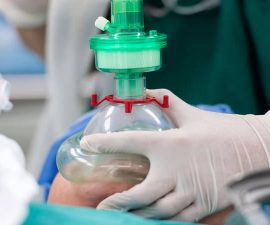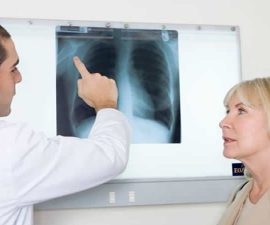… Continued …
Again the damaged area of the lungs due to emphysema and bronchiectasis can be permanent. Unfortunately, there is still no treatment to reverse or cure it.
Actually, the lungs have natural mechanism to repair themselves, though this ability is limited. At first, the disease may only cause a mild damage, reversible. But as the disease progresses and becomes advanced, there is greater chance for more serious damage to occur and permanent damage is inevitable.
Although there is still no cure, some effective treatments are available to help relieve the symptoms, control the disease and stop it getting worse so the lungs function can be preserved as much as possible.
Emphysema treatments
Currently, the treatments for emphysema are focused on improving the symptoms of the disease, especially such as shortness of breath. Some treatments are also aimed to help preserve the lung function and decrease the number of hospitalizations.
Medications for emphysema include:
- The use of bronchodilators to help relax and open the airways. You can use it in several different ways, like as a solution and as inhalers. Based on how it works, it is available in two options; long-acting and short-acting.
- Treating emphysema with steroids (corticosteroids) to help ease inflammation of the airways. It can be used as inhalers and oral. Intravenous (oral) corticosteroids are effective for exacerbations of emphysema, but it’s not recommended to use it frequently in long term since it poses the risk of serious effect effects.
- Sometimes antibiotics are prescribed if you have emphysema with bacterial infection.
Besides those medications, the treatment plan may also include some of the following therapies:
- Pulmonary rehabilitation therapy, an intensive program to help you learn how to breath more effectively and cope with the disease better. It usually involves the combination of nutrition, counseling, exercise, and medication management.
- Oxygen therapy. Emphysema can make it more difficult to breathe, leading to oxygen deficiency in the body. For this reason, you may need oxygen therapy.
What else? Surgery may also be suggested to remove large areas of diseased /damaged lung so the remaining healthy areas of the lung will work better.
How about lung transplant? It is usually the last treatment option. It might be able to cure the disease, but it carries the risk of other medical problems.
Bronchiectasis treatments
Although the damage caused to the lungs by this respiratory disease can be permanent, but some treatments are available to help improve the symptoms and prevent the damage from getting worse.
In general, the treatment for bronchiectasis is focused on controlling sputum and infections, improving airway obstruction, and reducing the risk of complications from the disease. The main treatment options include:
- Medication to help improve or relieve airflow within the lungs, such as with bronchodilators.
- Daily drainage to remove sputum. This includes exercises, postural drainage, or with special (handheld) devices.
- Antibiotics for treating the infection.
How about surgery? It is not the main treatment option for bronchiectasis. But sometimes it may be suggested with the following scenarios:
- If the disease is only affecting a small area, single section of the lung.
- If other treatments don’t work.
- And if there is not underlying condition that could make the disease to return.
Lifestyle measures such as exercising regularly, quitting smoking, keeping hydrated, and eating right in a balanced diet may help too. You may also need to take pneumococcal vaccine in order to protect against pneumonia. Consult with your doctor for more advice!
- http://www.medicalnewstoday.com/articles/8934.php
- https://www.nlm.nih.gov/medlineplus/ency/article/000144.htm




